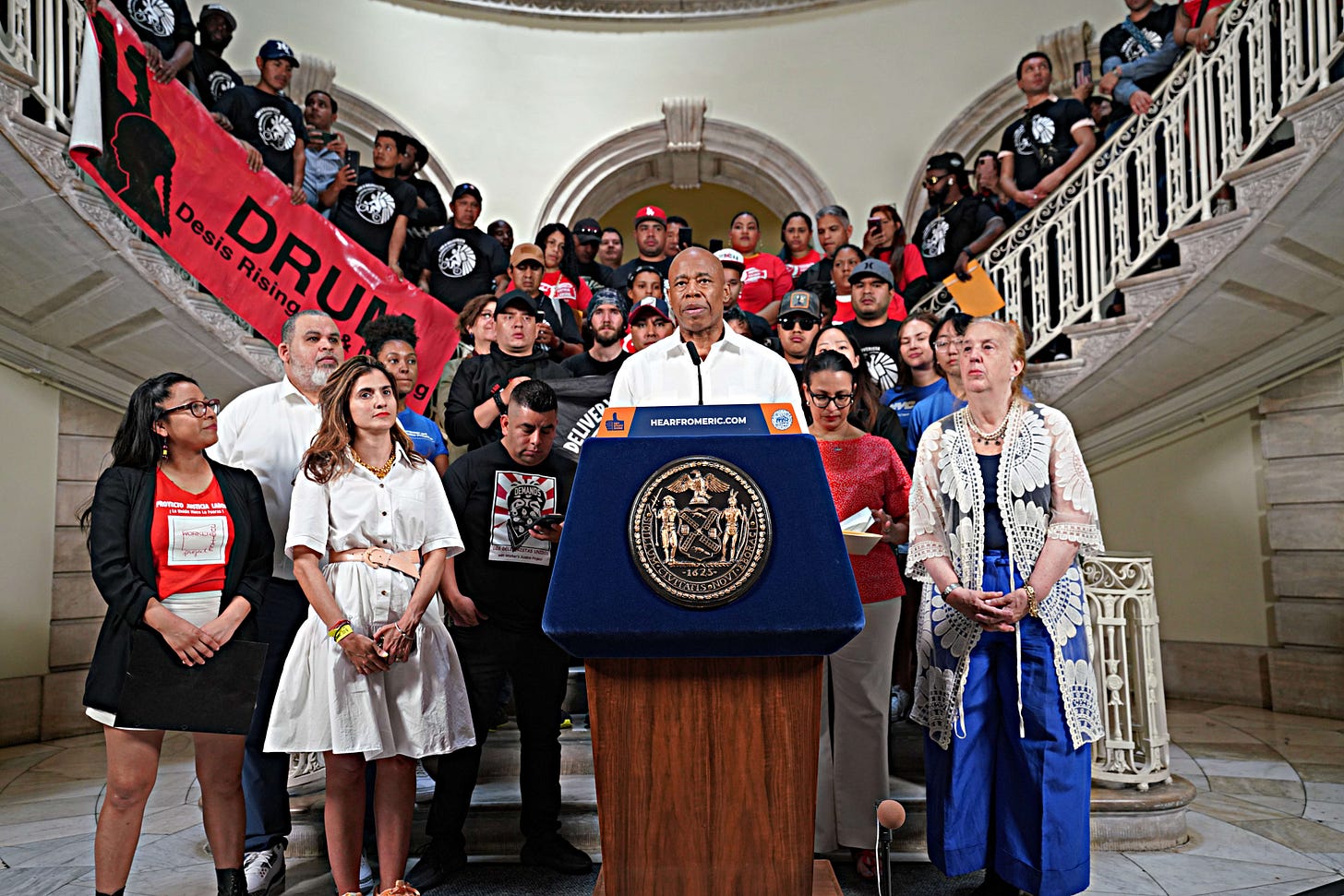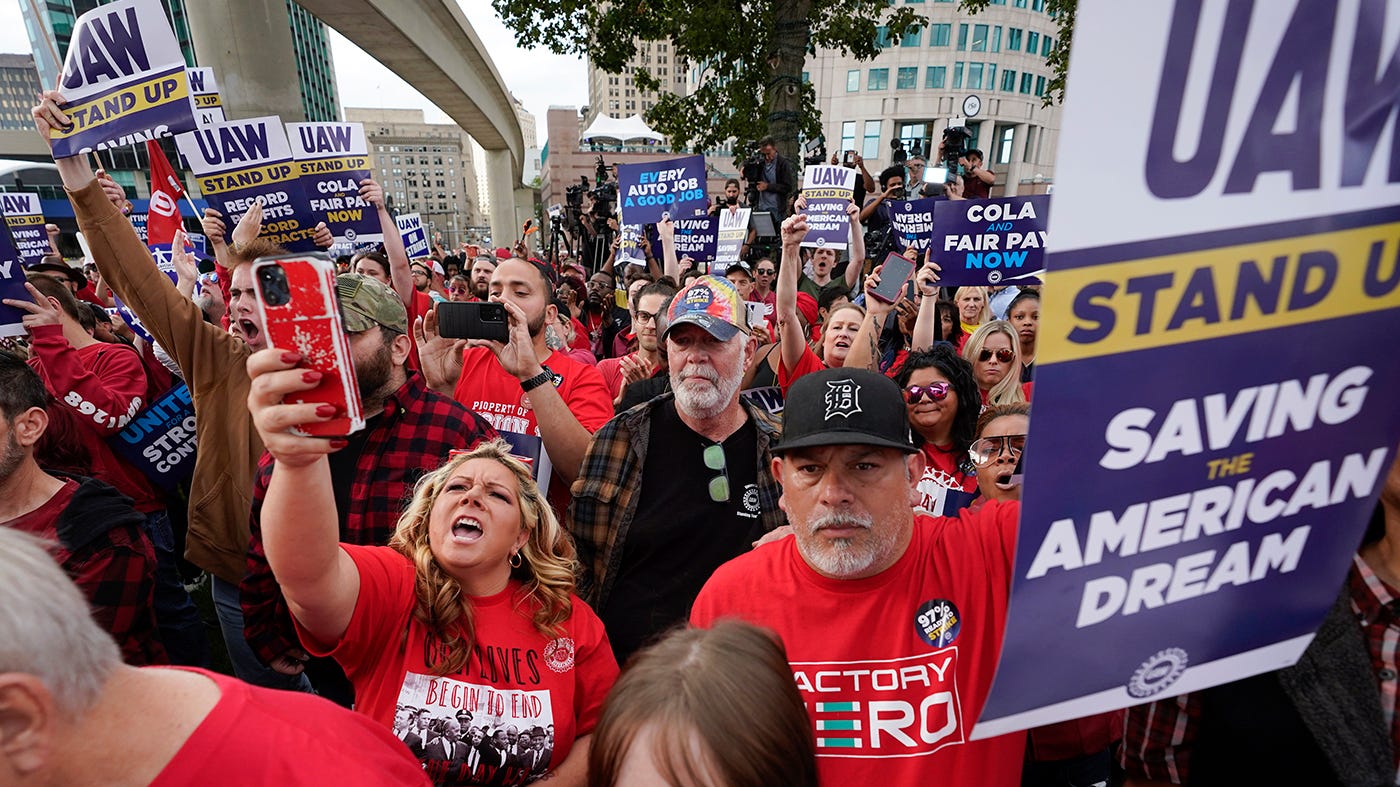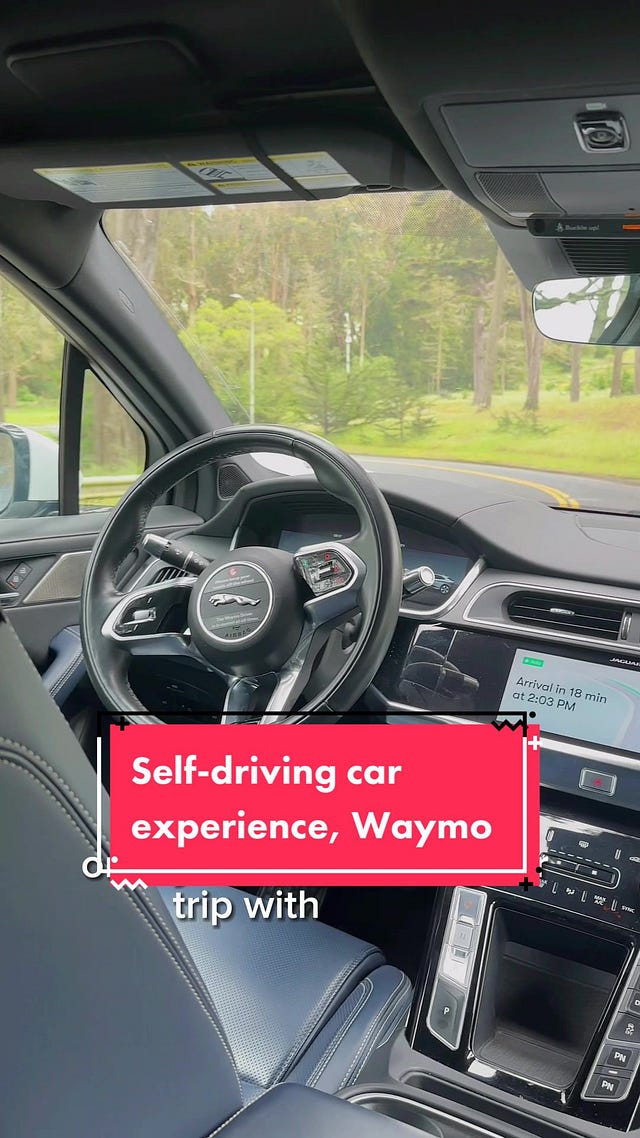
So… we have cover a lot of ground after missing the last 12 months. There were major labor policy changes, union organizing, strikes, and a plethora of AI and automation news that has downstream consequences for labor. So here’s a snapshot of 10 major developments that transpired in the last year.
If you think we missed something big, we would love to hear from you. Please drop a comment below!
Policy

In New York City, a court upheld a new minimum pay standard for gig delivery workers after Uber, Doordash, and other platforms sued to stop it. Platforms have the option to either pay workers ~$18/hour for all the time spent online on app (whether or not a delivery is taking place), or pay $0.50/minute for the time spent performing deliveries. NYC joins California and Seattle in setting delivery worker pay standards. (September 2023)
Illinois starts enforcing mandatory paid leave (for any reason) for employees. Employees can accrue up to 40 hours of paid leave, and accrue 1 hour of leave for every 40 hours worked. Illinois joins Maine and Nevada in setting a comprehensive paid leave policy. 15 other states and Washington DC have laws requiring paid sick leave, but don’t cover other reasons for leave. (January 2024)
The EU came to an agreement on the Platform Work Directive, which would allow for the automatic reclassification of gig workers as employees if certain criteria are met. The Directive also includes “algorithmic management” provisions regulate platforms’ use of automated monitoring and algorithmic decision-making systems. (March 2024)
Florida rolled back child labor laws for 16 and 17-year olds. It allows those older children to work more than 30 hours a week (with the consent of a parent or guardian), and work past midnight on Sundays and holidays even when there is school the next day. With child labor law violations on the rise, some states have been loosening child labor laws, while others are strengthening them. (March 2024)
Unions

2023 was a record-setting year for strikes in the US after a long, multi-decade decline in major work stoppages. Writers and actors in Hollywood, workers at the big 3 car manufacturers, health care workers with Kaiser Permanente all went on strike. Hundreds of thousands of workers won a raise and better protections through new contracts brokered last year.
Starbucks agrees to come to the bargaining table after long resisting contract negotiations with Workers United, the union representing Starbucks workers at more than 370 locations. This is a significant change in tone for a company that the National Labor Relations Board said had a “pattern” of violating labor law. As an act of good faith, Starbucks will extend the same pay hikes and benefits to the 10,000 unionized workers as it did to non-union workers in May 2022.
AI and automation are gaining more importance in union contract negotiations. The Writers Guild of America’s contract included important terms on AI, such as preventing AI from being trained on scripts without writers’ permission. Likewise, the contract negotiated for West Coast dockworkers included crucial agreements on the use of automation, though the specific terms remain unclear. And unionized bus drivers in Ohio negotiated veto power over the use of autonomous vehicles in the future.
AI and Automation
In San Francisco, Waymo and Cruise opened up their driverless car ridesharing services to the public. Two months later, however, GM-owned Cruise was stripped of its self-driving license after it ran over and dragged a pedestrian. Waymo and Uber announced a multi-year strategic partnership, where rides and deliveries requested through the Uber app could be provided by Waymo driverless vehicles.
OpenAI announced Sora, which can generate realistic video from text. The first short-film generated with Sora, “air head” is available on Youtube. Some are wary that the new model may amplify disinformation risks. Creators are also concerned about their works being used to train Sora without their explicit consent. Relatedly, Youtube has stated that OpenAI would be in violation of its terms of service if it was using its videos to train Sora. (February 2024)
New startup Devin built the first “AI software engineer.” Devin can build apps, fix bugs, and has even successfully completed paid gigs on Upwork, a digital freelance marketplace. The technology may still have some issues to work through. (March 2024)
Thanks for your interest in labor policy and technology. If you’d like to hear about a particular topic, feel free to leave a comment on this post. You can also get in touch on Twitter or through Substack Chat (@nkav).






Great update, Nilesh! Welcome back